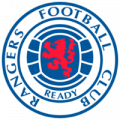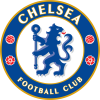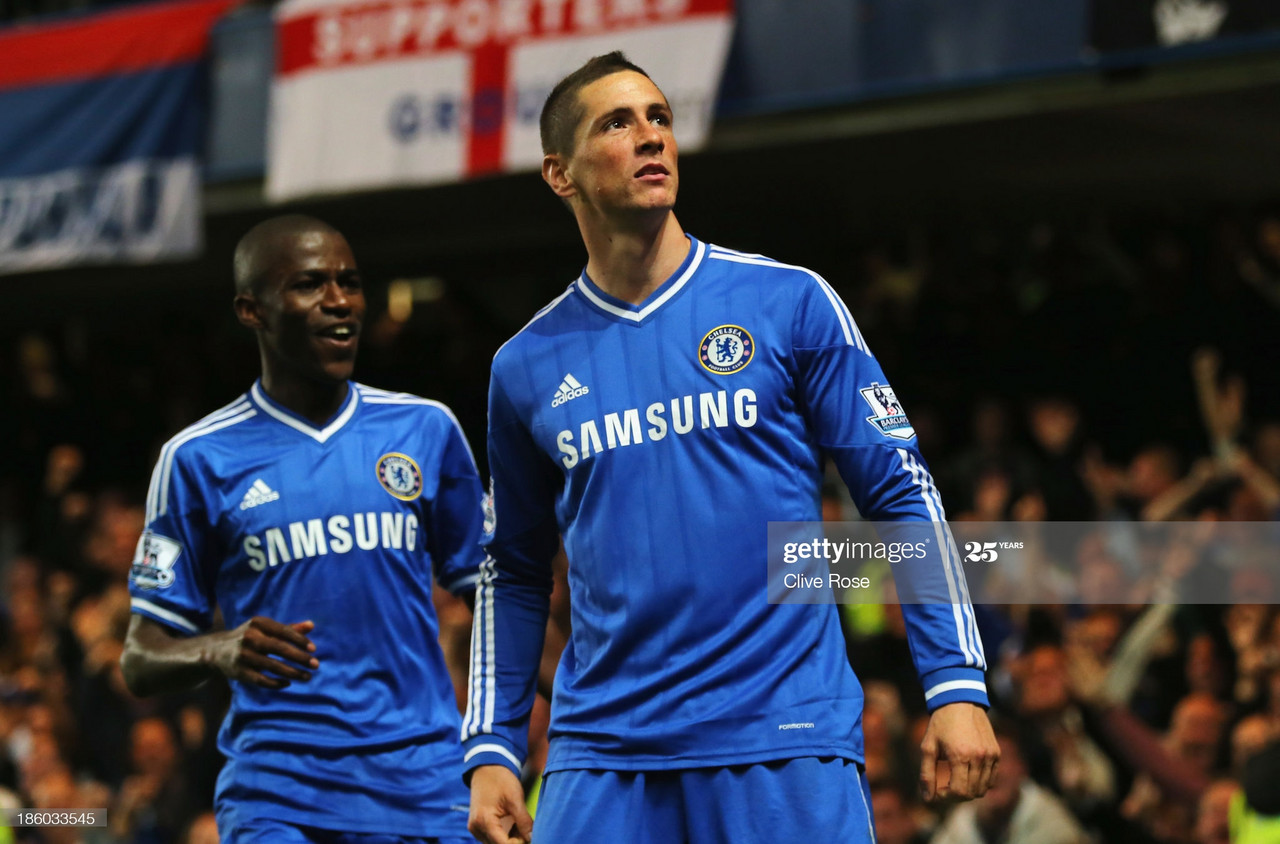When Fernando Torres made the controversial move from Liverpool to Chelsea on Deadline Day in January 2011 for a club-record fee of £50million, a lot of hype and expectation was put on his shoulders to deliver the high standards and impressive goal return that he managed at the Merseyside club. However, the player they signed was a shadow of who he once was, and Torres quickly became one of the most derided players in the Premier League. But while he struggled for form and consistency at Stamford Bridge, he did walk away with three major trophies under his belt and some iconic moments in a Chelsea shirt. So the question is, was he really a flop, or was he somewhat of a Chelsea hero?
A Slow Start Under Ancelotti
In his first season in charge in 2009/10, Chelsea were an attacking force under Carlo Ancelotti, winning the Premier League title by scoring more than any team had previously managed in a single season in the Premier League in the process. However, after some major losses in the summer transfer window, including Michael Ballack, Joe Cole and Deco amongst others, the team looked significantly weaker in Ancelotti's second season in charge. Reinforcements in the attack were necessary in the January window, and Chelsea went all out to sign Fernando Torres from Liverpool for a club-record fee. With Torres keen on the move, and Liverpool bringing in strikers Luis Suarez and Andy Carroll in the window, the transfer came to fruition on Deadline Day, with Torres being put straight into the line-up to face his former team just a few days later. Starting in a front three with Didier Drogba and Nicolas Anelka, it was a tough first outing for Torres, as Chelsea lost 1-0. Over 900 minutes of football later, Torres finally managed to score his first Chelsea goal against West Ham, at a rain-soaked Stamford Bridge pitch held the ball up and allowed Torres to turn and fire a left-footed shot into the bottom corner which created rapturous celebrations from the home end and the Chelsea team, showing how much everyone at the club desperately wanted him to succeed. Failing to add to that tally, the season ended with Chelsea without a trophy and saw the end to Ancelotti's reign at the club, giving Torres the task of impressing a new manager at the start of a first full season at Chelsea.
From Zero to Hero
Ahead of the 2011/12 season, Chelsea appointed former Porto manager Andre Villas-Boas as manager, and while there was heavy rotation amongst the forwards in early games, Torres looked sharper than he had the previous season. The difficulty he found, however, was there always seemed to be a case of one up one down for the Spaniard, as his first goal of the season against Manchester United was overshadowed with a horrific miss later on, and his second, coming the following week against Swansea City was shortly followed by a red card. Quickly shaken off by bagging a brace against Genk in the Champions League, the goals soon dried up for Torres as he lacked confidence and composure in his game, going on the worst goal drought of his career. He did not score until the FA Cup quarter-final against Leicester City, an example of the old analogy about London busses, you wait a long time for one to come along and two come along at once, as he scored two in the space of ten minutes in a 5-2 victory. By this point, Villas-Boas was no longer manager and was replaced by his assistant manager Roberto Di Matteo, from which point Chelsea's season improved drastically. Having set up Salomon Kalou's winning goal away at Benfica in the quarter-final, the Champions League seemed like a way for Torres to shine. Despite starting on the bench the semi-final second leg clash against Barcelona, it was that game that saw arguably the most iconic moment of his Chelsea career. Brought on for Didier Drogba, Torres picked the ball up on the halfway line, dribbled half the length of the pitch and rounded Victor Valdes to draw Chelsea level at 2-2 on the night, put them 3-2 ahead on aggregate, and send the club through to the Champions League final in what was described as the commentator as 'the most dramatic moment of the season'. It was at that point that many saw Torres as a hero, repaying his massive transfer fee in a single moment. From this, it was clear to see more confidence in his game, scoring his first hattrick for the club in a 6-1 win against Queens Park Rangers. Though he was an unused sub in the final, Torres won his first silverware at Chelsea via the FA Cup and was named on the bench for the Champions League final against Bayern Munich. Coming on for Salomon Kalou at 1-0 down, Torres' hard work and pressing made a massive difference for Chelsea, winning the corner that lead to Drogba's headed equaliser. Ultimately winning the game on penalties, Torres was an integral part of Chelsea's 'lions in Bayern', and is remembered fondly for his role in the club's first-ever Champions League victory.
Luck Starting to Turn Around
After being given the job permanently, manager Roberto Di Matteo gave a big vote of confidence in Torres for the start of the 2012/13 season, making him first choice striker following Didier Drogba, Nicolas Anelka, Salomon Kalou and Romelu Lukaku all leaving the club either permanently or on loan. Starting as a lone number nine, Torres' start to the season was inconsistent, much like the rest of the Chelsea team's. Scoring four goals in his first six games in the Premier League, Torres seemed to have regained his goal-scoring touch in a season where many felt he had a point to prove. However, subpar individual and team performances in the Champions League saw Chelsea's retention of the Champions League ended at the group stage, ultimately leading to the sacking of Di Matteo. Torres was reunited with former Liverpool manager Rafa Benitez who was brought in on an interim basis, with one of the reasons cited for his hiring being to perhaps get Torres back to his best. And while his form ebbed and flowed like it had done in previous seasons, it was undoubtedly Torres' best season on an individual level, ending the campaign as Chelsea's top scorer in all competitions with 22 goals. Despite added competition arriving in January with the signing of Demba Ba from Newcastle United, Torres seemed more confident in his game, linking up well with Juan Mata, Eden Hazard and Oscar, all culminating in a Europa League victory which saw the Spaniard score six goals, including the opener in the final against Benfica. With the confidence that he came into the season off the back of winning the golden boot at Euro 2012 in the summer, this season showed that Torres still had plenty of ability, which possibly made him all the more frustrating that it did not result in more consistency in front of goal.
Playing Under 'The Special One'
The summer of 2013 saw the return of Jose Mourinho for his second spell in charge of Chelsea. This saw a shake-up in the Chelsea attack, with Willian, Andre Schurrle and Samuel Eto'o all brought in, which saw both Torres and fellow Spaniard Juan Mata spend more time out of the team. After starting the season as first choice, Torres eventually found himself to be backup to Eto'o, with Mourinho's lack of trust in Torres becoming evident after his red card against Tottenham Hotspur. That being said, Torres' work rate did seem to increase in Mourinho's more disciplined system, and his grafting performance against Manchester City in October 2013 was rewarded with an assist and a dramatic late winner, one of the highlights of Chelsea's season. In what looked like an indifferent campaign for Torres where he certainly did not live up to expectations, two games against his former teams at the latter stage of the season seemed to define Torres' time at the club. The first came in the Premier League at Anfield against Liverpool, as he came on as a late sub while Chelsea were leading 1-0. A late breakaway saw Torres run through on goal before unselfishly squaring to Willian to score to make it 2-0 and leave a dent in his former club's title hopes. The second came later that week, as he lead the line against his boyhood club Atletico Madrid in the Champions League semi-final. Torres scored the opening goal and did a respectful muted celebration, before a second-half capitulation defensively from Mourinho's team resulted in a 3-1 defeat. After these games, there was a sense of the end for his Chelsea career, with his final appearance coming at Cardiff City, where he scored the winning goal in what was a sweet end to a bittersweet campaign for Torres and Chelsea.
Conclusion
Torres' time at Chelsea was undoubtedly turbulent. He hit the headlines on the back pages for both the right and the wrong reasons, becoming a laughing stock for rival fans and frustrating for Chelsea fans, albeit with praise where it was due thrown in. When it came to Torres, there was always a sense where everyone at Chelsea wanted him to do well, with there always being an extra loud cheer when he scored, and always supporting cries of 'Torres! Torres!' whenever he showed effort and desire, something that you could never really fault him for. When considering the amount paid for him and the notion that Torres was arguably the best striker in the world a few years prior to his move, it is no surprise that many consider Torres to have been a flop at Chelsea. However, considering the circumstances: coming off the back of a bad injury, only made worse by him playing while injured at the World Cup; the pressure put on his shoulders by rival fans and the media; the constant change of managers; and the tough competition for places, you start to understand the reasoning for this drop in form. All in all, as revealed in recent documentary The Lost Symbol, you can tell that Torres was never really happy at Chelsea and instead saw his time at the club as simply doing what he set out to do originally: win trophies. With fantastic memories for Chelsea fans with some of the goals and moments in Chelsea history that he was involved in, most Chelsea fans will more than likely sway towards the latter option when asked whether Fernando Torres was a flop or a hero.










































